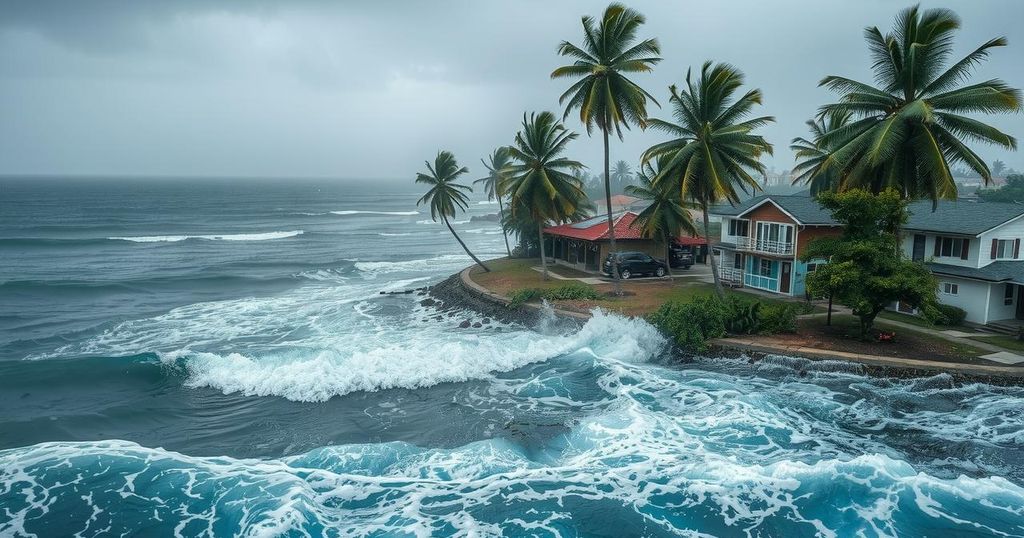Global news
AFRICA, CABO DELGADO, CHI, CHIDO, EMERGENCY RESPONSE, EUROPEAN UNION, HURRICANE BERYL, LUISA MEQUE, MAPUTO, ME, MEQUE, MOZAMBICAN, MOZAMBIQUE, NAMPULA, NATIONAL INSTITUTE FOR DISASTER RISK MANAGEMENT AND REDUCTION, NATIONAL INSTITUTE OF RISK AND DISASTER MANAGEMENT, NATURAL DISASTER, NATURAL DISASTERS, NIASSA, RFI, TETE
Leila Ramsay
0 Comments
Cyclone Chido Claims 34 Lives, Leaves Trail of Destruction in Mozambique
Cyclone Chido has caused at least 34 deaths and widespread destruction in Mozambique, primarily impacting Cabo Delgado province. With thousands displaced and infrastructure severely damaged, the storm has created urgent humanitarian needs. Emergency aids are being sought as the cyclone continues to threaten more areas.
Cyclone Chido has resulted in at least 34 fatalities and extensive devastation throughout Mozambique, as reported by the National Institute of Risk and Disaster Management. Making landfall earlier this week, the cyclone initially struck the Cabo Delgado province, where the majority of casualties occurred. The storm has caused substantial infrastructure damage, displacing thousands and destroying significant numbers of homes and fishing vessels. Although its intensity has diminished, it continues to pose threats due to persistent rains and strong winds. Emergency response efforts are ongoing, and humanitarian aid has been urgently requested as local communities remain on alert for further developments.
Mozambique is frequently vulnerable to cyclones, and Cyclone Chido is one of the most severe storms to impact the nation in recent years. The province of Cabo Delgado, already facing challenges related to conflict and underdevelopment, requires especially robust support in light of the cyclone’s damage. With the total death toll potentially rising and substantial infrastructure loss, relief efforts have become critical in safeguarding at-risk populations, particularly children and their families. The United Nations and various NGOs are mobilizing to address immediate humanitarian needs.
In summary, Cyclone Chido has tragically claimed the lives of at least 34 individuals and left widespread destruction in its wake. The ongoing humanitarian crisis necessitates urgent assistance, particularly for vulnerable populations such as children and displaced families. As recovery efforts progress, it is imperative for local and international communities to collaborate in delivering aid and support essential services to affected regions. The long-term impact of this disaster will require sustained attention and resources to rebuild lives and infrastructure.
Original Source: www.rfi.fr




Post Comment